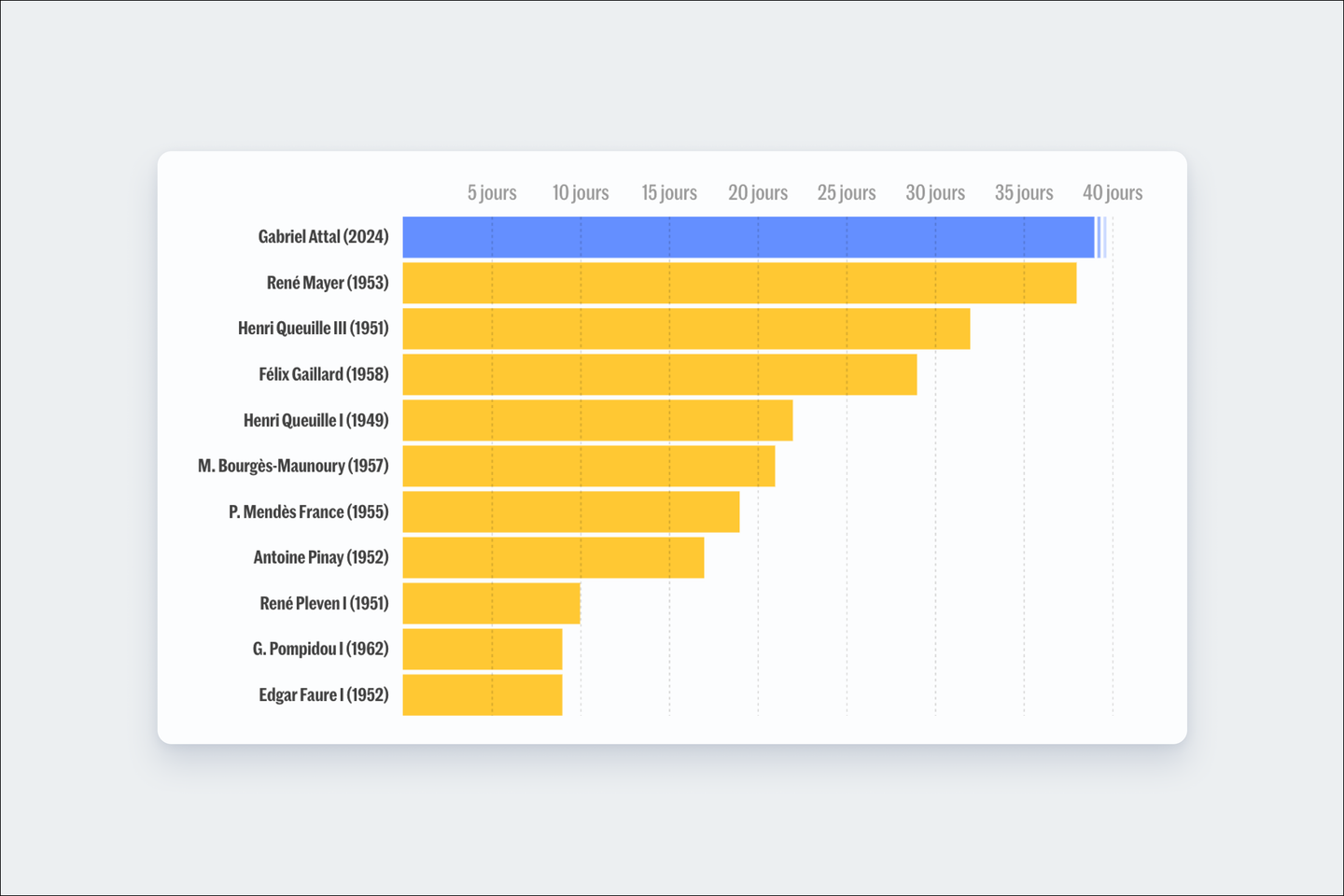


Saturday, August 24 marks 39 days since French President Emmanuel Macron accepted the resignation of Gabriel Attal's government. Since then, the caretaker prime minister and his team have been managing "day-to-day affairs," while waiting for a government to emerge from the legislative elections of June 30 and July 7. Since the advent of the Fifth Republic in 1958, this is the first time that a transition period between two governments has exceeded nine days (this record was previously set in 1962 by Georges Pompidou's first government, under the presidency of Charles de Gaulle).
This transition period is even longer than the record of 38 days set by René Mayer's government in 1953, under the Fourth Republic – even though the Fifth Constitution largely designed to remedy the instability of its predecessor.
Renowned for its instability, the Fourth Republic saw 24 successive governments in its 12 years (1946-1958), notably due to Parliament's predominance: it closely controlled the government within an Assemblée Nationale fragmented into three major forces. The proportional voting system (by department) forced MPs to form alliances in order to build majorities, which they then broke at the whim of political events. Governments, which had no means of overriding the Assemblée – Article 49.3, which allows the government to pass a bill without a vote, did not exist – were frequently overthrown or forced to resign, and were left to manage day-to-day affairs for an average of 13 days.
Attal government falls short of Belgian world record
Despite this French record, Attal's resigned government is still far from competing with some other parliamentary regimes. Belgium went 540 days without a full government in 2010-2011, Lebanon 396 days in 2020-2021, and Spain 121 days in 2023.
In 2024, France isn't alone – the country's Belgian neighbors haven't had a government either since the parliamentary elections on June 9, i.e. for 76 days. As in Paris, the resigning government is managing the kingdom's "day-to-day affairs" – a common situation, but one that is starting to worry the Belgians when it comes to parliamentary instability among their French neighbors.
